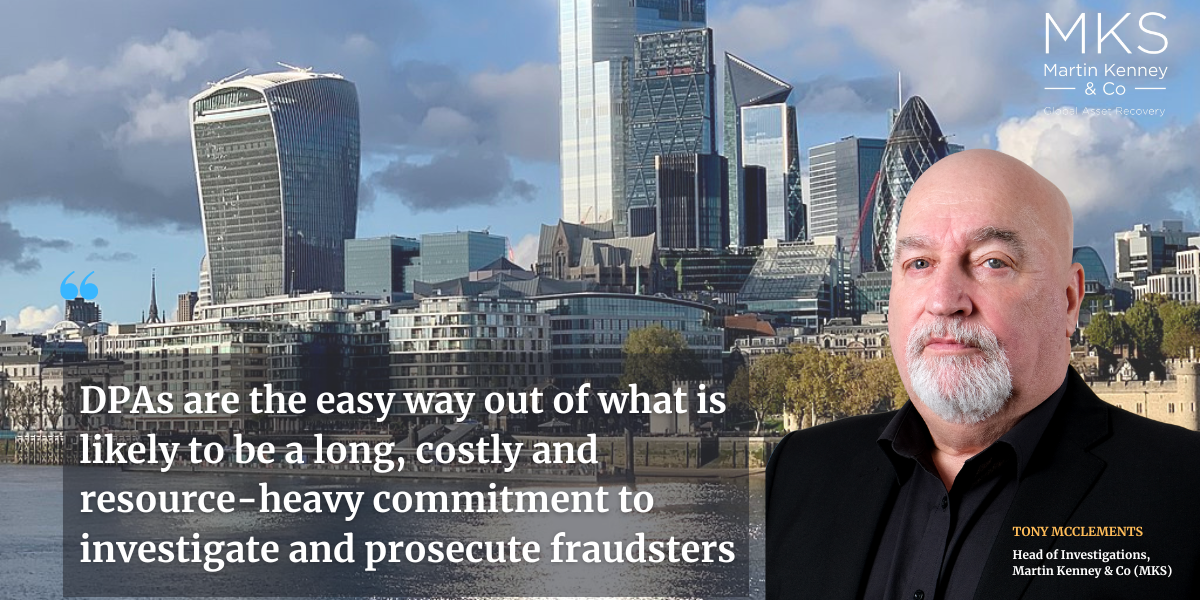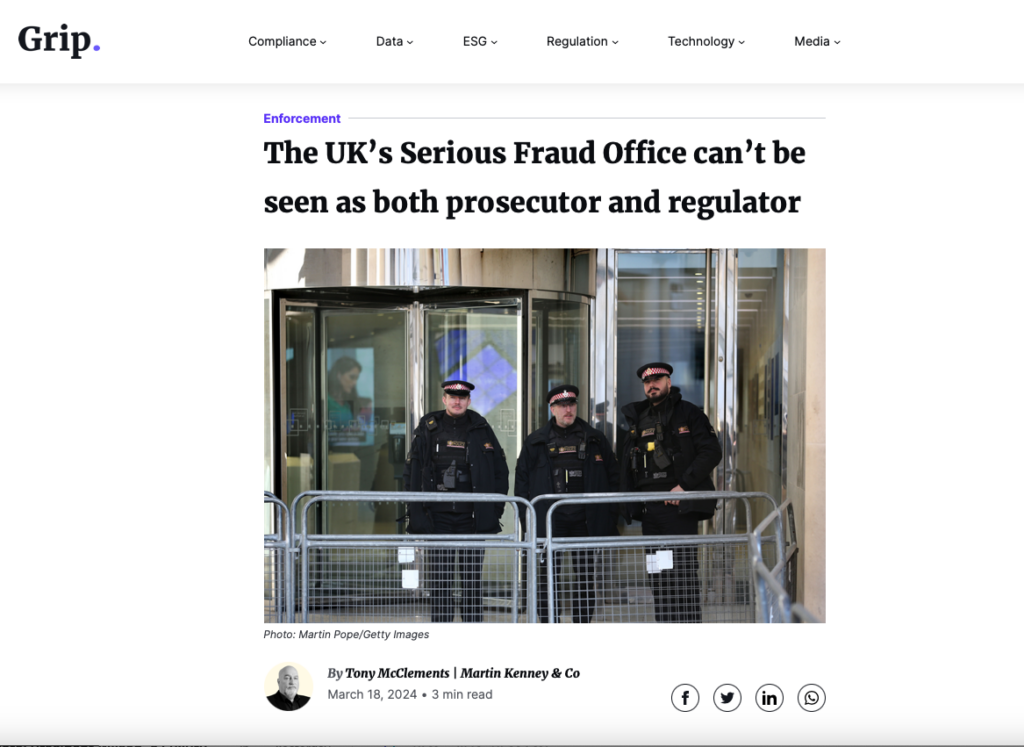Corporate plea deals can be useful as a bridge between negligence and criminal behavior, but they should not form part of the Serious Fraud Office’s main arsenal — suggests our head of investigations, Tony McClements.
“DPAs [deferred prosecution agreements] are all well and good as long as they are used to bridge the gap between negligence and criminal behavior. But they should not form part of the SFO’s ability to portray itself as being successful.”
The UK’s version of the corporate plea deal, Deferred Prosecution Agreements (DPAs), came into being exactly a decade ago. Reached between a prosecutor and an organisation which would otherwise be prosecuted, they allow a prosecution to be suspended for a defined period – provided the organisation meets certain specified conditions.
The UK’s Serious Fraud Office (SFO) has embraced the concept wholeheartedly and has managed to levy £1.6 billion ($2.1 billion) for the public purse via these plea deals. However, I am not a fan, and here’s why.
SFO role before DPAs
Being a bit of a policing dinosaur who has specialised in the investigation of fraud and other financial crimes since 1998, I am very familiar with the role of the SFO prior to the implementation of DPAs. I always recognised the SFO as being comprised of serious investigators and prosecutors tackling complex fraud and bribery cases. In some ways, these investigators and prosecutors were seen as the leading voices in their field and in the prosecution of the top tiers of financial crime.
I am fortunate (I think) to have experience of investigation of all types of major crime, including terrorism, organised crime and homicide. However, the toughest crimes I have had to investigate have been complex frauds. They aren’t as sexy as the other three in policing terms, and they are unlikely to achieve the same sense of attention or importance. Yet investigating complex fraud has probably been my most challenging policing experience.


